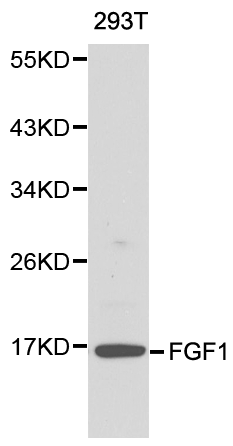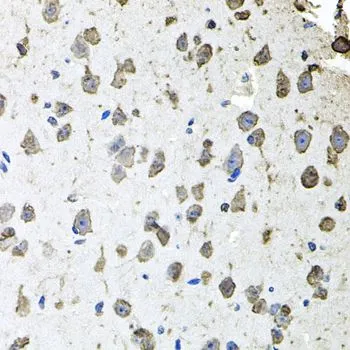
IHC-P analysis of mouse brain tissue using GTX02555 FGF1 antibody. Dilution : 1:100
FGF1 antibody
GTX02555
ApplicationsImmunoFluorescence, Western Blot, ImmunoCytoChemistry, ImmunoHistoChemistry, ImmunoHistoChemistry Paraffin
Product group Antibodies
ReactivityHuman, Mouse, Rat
TargetFGF1
Overview
- SupplierGeneTex
- Product NameFGF1 antibody
- Delivery Days Customer9
- Application Supplier NoteWB: 1:500 - 1:2000. IHC-P: 1:100 - 1:200. *Optimal dilutions/concentrations should be determined by the researcher.Not tested in other applications.
- ApplicationsImmunoFluorescence, Western Blot, ImmunoCytoChemistry, ImmunoHistoChemistry, ImmunoHistoChemistry Paraffin
- CertificationResearch Use Only
- ClonalityPolyclonal
- ConjugateUnconjugated
- Gene ID2246
- Target nameFGF1
- Target descriptionfibroblast growth factor 1
- Target synonymsAFGF, ECGF, ECGF-beta, ECGFA, ECGFB, FGF-1, FGF-alpha, FGFA, GLIO703, HBGF-1, HBGF1, fibroblast growth factor 1, beta-endothelial cell growth factor, endothelial cell growth factor, alpha, endothelial cell growth factor, beta, fibroblast growth factor 1 (acidic), heparin-binding growth factor 1
- HostRabbit
- IsotypeIgG
- Protein IDP05230
- Protein NameFibroblast growth factor 1
- Scientific DescriptionThe protein encoded by this gene is a member of the fibroblast growth factor (FGF) family. FGF family members possess broad mitogenic and cell survival activities, and are involved in a variety of biological processes, including embryonic development, cell growth, morphogenesis, tissue repair, tumor growth and invasion. This protein functions as a modifier of endothelial cell migration and proliferation, as well as an angiogenic factor. It acts as a mitogen for a variety of mesoderm- and neuroectoderm-derived cells in vitro, thus is thought to be involved in organogenesis. Multiple alternatively spliced variants encoding different isoforms have been described. [provided by RefSeq, Jan 2009]
- ReactivityHuman, Mouse, Rat
- Storage Instruction-20°C or -80°C,2°C to 8°C
- UNSPSC12352203

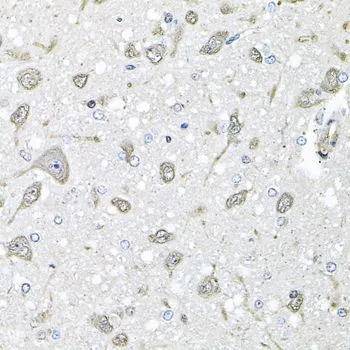

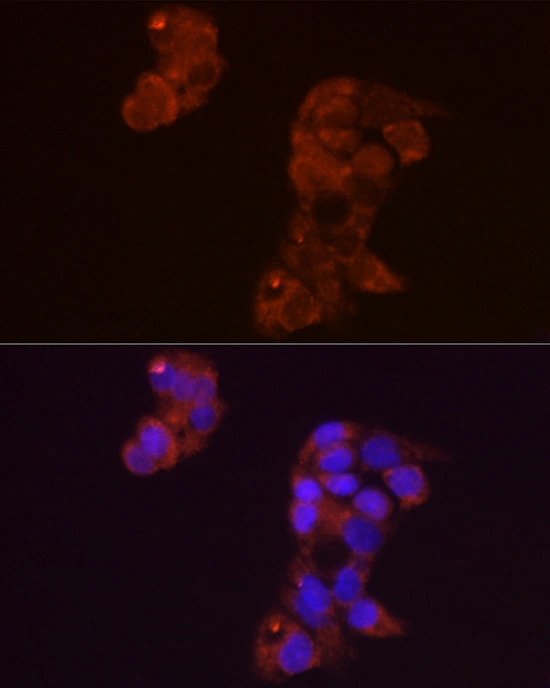

![WB analysis of various sample lysates using GTX02554 FGF1 antibody [GT1220]. Dilution : 1:1000 Loading : 25 μg per lane](https://www.genetex.com/upload/website/prouct_img/normal/GTX02554/GTX02554_1_0911_w_23053122_280.webp)
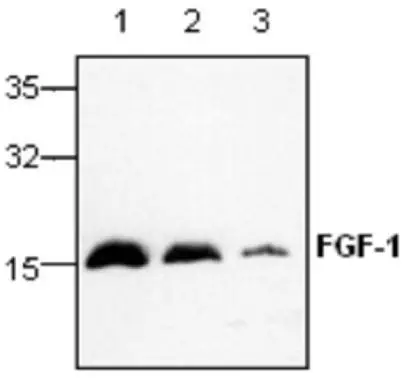

![WB analysis of HEK293T cells transfected with FGF1 plasmid (Right) or empty vector (Left) for 48 hrs using GTX84503 FGF1 antibody [4D2]. Loading : 5 ug per lane](https://www.genetex.com/upload/website/prouct_img/normal/GTX84503/GTX84503_4422_WB_w_23061420_782.webp)

